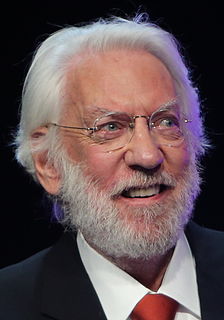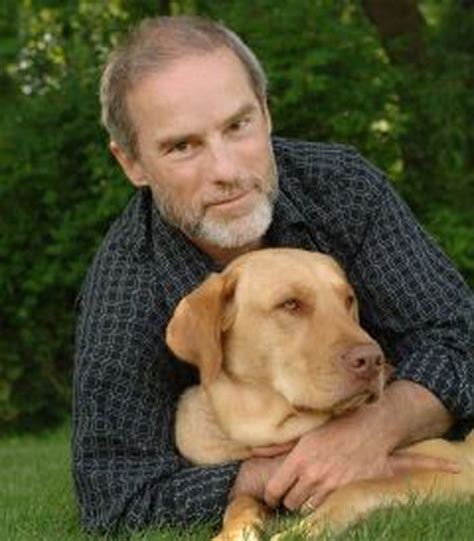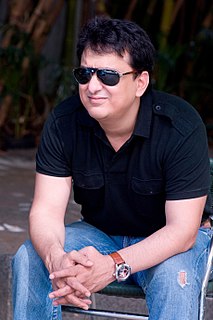A Quote by Jim Jarmusch
I had this idea for a long time to make a film about a poet in Paterson named Patterson. I wanted him to be working class. Eventually I thought a bus was a perfect visual way to move him, to drift him through the city, to have a measured kind of routine lifestyle. And all these things kind of congealed into the film "Paterson" eventually.
Related Quotes
I visited Paterson many years ago - 20 some years ago as a kind of day trip because of William Carlos Williams, because of Allen Ginsberg having lived there. And I went to the Great Falls and sat really in the exact same spot as Adam Driver does as Paterson. And I walked around the factory buildings, and I was rereading - I was reading at the time the epic length poem "Paterson" by Williams.
Leon Golub was a painter. He was an artist struggling to make it in the New York City art world, but at the same time he was a very political guy, and engaged in the world around him. In the film, we saw how that world eventually encroached into his painting. One of my favorite lines in the film was how he had to be more precise, 'but now the pants have wrinkles, I hated to do it, but I had to do it.'
I wanted to be a car mechanic and I wanted to race cars and the idea of trying to make something out of my life wasn't really a priority. But the accident allowed me to apply myself at school. I got great grades. Eventually I got very excited about anthropology and about social sciences and psychology, and I was able to push my photography even further and eventually discovered film and film schools.
Akhnaten is kind of a dark, kind of mysterious character. We don't know a lot about him - a lot of information on him was lost. But he obviously was a kind of iconoclast of him time. I guess I'm attracted to people like that. Like [Albert] Einstein also, who radically changed our way of thinking about the world we live in.
I thought, "Oh, my god, that's what happens every time I talk with a journalist in the middle of shooting and I talk about my character. I describe him, I objectify him, and I kill him." So, I've never spoken with a journalist in the middle of a film. I don't do the EPK until the very end of a film. I can't talk about Kiefer's process, but what he brings to the table is beautiful.
I hated him for as long as I could. But then I realized that loving him...that was a part of me, and one of the best parts. It didn't matter that he couldn't love me, that had nothing to do with it. But if I couldn't forgive him, then I could not love him, and that part of me was gone. And I found eventually that I wanted it back." ({Lord John, Drums of Autumn}
If you love Alex now, then love him forever. Make him laugh again, and cherish the time you spend together. Take walks and ride your bikes, curl up on the couch and watch movies beneath a blanket. Make him breakfast, but don't spoil him. Let him make breakfast for you as well, so he can show you he thinks you're special. Kiss him and make love to him and consider yourself lucky for having met him, for he's the kind of man who'll prove you right.
Then I dropped my forehead against his and sat there for a long time, as if I could telegraph a message through our two skulls, from my brain to his. I wanted to make him understand some things. You know all that stuff we’ve always said about you?” I whispered. “What a total pain you are? Don’t believe it. Don’t believe it for a minute, Marley.” He needed to know that, and something more, too. There was something I had never told him, that no one ever had. I wanted him to hear it before he went. Marley,” I said. “You are a great dog.
The average American is just like the child in the family. You give him some responsibility and he is going to amount to something. He is going to do something. If, on the other hand, you make him completely dependent and pamper him and cater to him too much, you are going to make him soft, spoiled and eventually a very weak individual.
Obviously I've been reading Kafka for a long long time, since I was really young, and even before I ever read him I knew who he was. I had this weird sense that he was some kind of family. Like Uncle Kafka. Now I really think of him that way, the way we think about an uncle who opened up some path for being in a family that otherwise wouldn't have existed. I think of him that way as a writer and a familial figure.
When I thought I'd killed him, I felt more alone than I've felt in a long time. Like I couldn't stand walking through this city knowing he wasn't in it. Like somehow, as long as he was out there somewhere, if I was ever really in trouble, I knew where I could go and while maybe he wouldn't do exactly what I wanted him to do, he'd keep me alive. He'd get me through whatever it was to live another day.
After I read the story of 'Dangal' and before the film released, I called director Nitish Tiwari asking him if he had any good script. He told me to wait for some time. So we had three-four sittings, and this film, 'Chhichhore,' came to him. The film did not have superstars, but I felt that this is the script that needs to be told.
Remember I came to Albuquerque to do a hair and makeup test and wardrobe fitting; you guys were already shooting. It's tough when the movie's already started and you kind of show up. You're the new kid on the block. I walked onto the set and Tommy [Lee Jones] was about to do the scene. I just kind of walked up to him. I was shaking, but I just gave him this big hug and he just had nothing to say. He was like, 'Gotta go to work now.' I had a great time working with him."
When I got onto set with him we were given a folder of storyboards. I thought that was pretty incredible because I hadn't worked with anybody who used storyboards before so he obviously had a very precise way as to how he visualized the film from the very beginning. It was every scene, but to his credit he was incredibly collaborative and gave us many opportunities to have our own input and to change things with him, so it was a really great way of working.




































